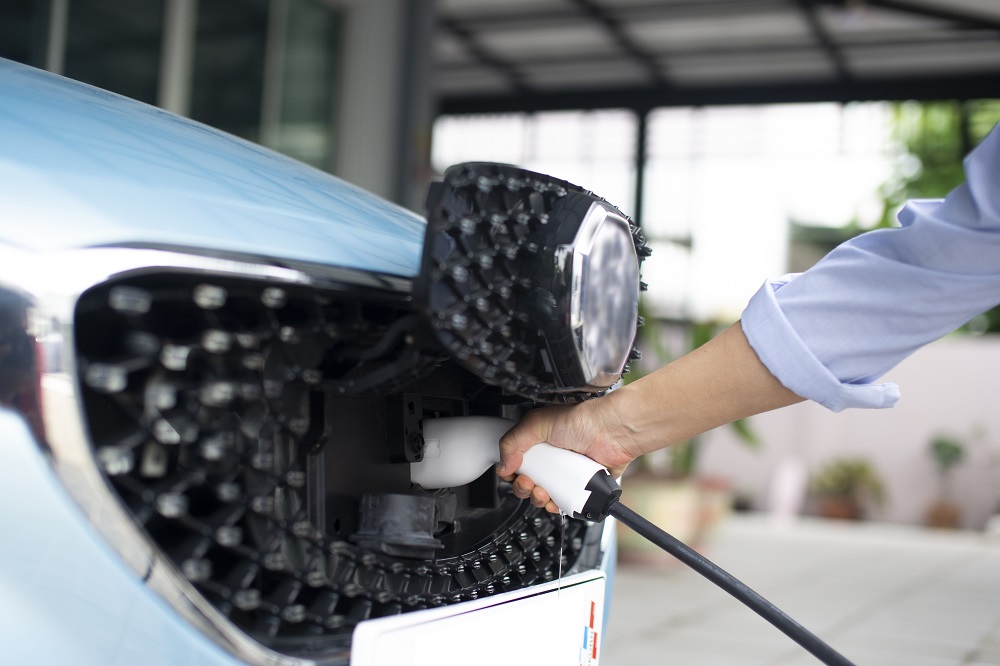Charge point market for EVs set to grow 29% a year
The charge point market for electric vehicles (EV) is set for rapid growth over the next ten years, according to new analysis.
A report from energy market research firm Delta-EE this week predicts 29% annual growth through to 2030, even with the slowdown in EV vehicle sales triggered by the COVID-19 pandemic.
There is a growing expectation that the UK’s EV charging infrastructure will receive a big boost as one of the key components of the government’s upcoming green recovery package. It is also thought that the recovery plan will include a boost for EV grants and a quicker phase out of petrol and diesel car sales.
The report acknowledges that there will be a significant drop in EV sales this year, perhaps as much as 30% but at the same time it emphasises the case being made for the government to prioritise on-street and fast-charge points.

EV growth
John Murray, head of EVs at Delta-EE said:
“We believe charge point installations will continue to grow across all segments, backed by renewed government funding. As we know, availability of charge points is one of the key barriers to widespread EV adoption.
“We’re all eager to see the transition to electric happen as quickly as possible, but if more emphasis is put on the infrastructure behind it, we could see an accelerated EV uptake in line with the government’s vision.”
Rapid chargers are likely to be only 2% of on-street chargers by 2030, while in destination locations rapid chargers will move from a current market share of 18% to 6% by the end of the decade as the number of slower chargers being deployed is expected to grow.
Rapid EV chargers
The EV charge point sector fears that a failure to deliver enough fast chargers than can deliver a full recharge in less than 30 minutes could slow the uptake of EVs.
John Murray said:
“BP recently revealed through research in France, Germany, Spain and the UK that the availability of charge points was second only to price as the most significant barrier to EV adoption. They also stated ultra-fast charging will be key to EV uptake with the public. The private and public sectors will need to collaborate on and implement policy that is necessary to make this a reality.”
While reports this year show that the UK is one of the leaders in EV infrastructure in Europe, the need to maintain the quality and speed of roll-out is crucial to meeting longer-term goals of fossil-fuel free transport.
Big EV investment
According to one report there an average of nine EVs per public charge point, exceeding the recommended 10 per point suggested by the European Commission. Strong investment has been key to this success, with £300-400 million invested into public charging infrastructure so far.
However, distribution of infrastructure varies widely. The areas with the greatest density of infrastructure are London, Scotland, the South East and the South West, while the midlands and the north have more meagre chare point resources.
In the report, Alexander Lewis-Jones, senior analyst at Delta-EE, said:
“There’s a lot of talk about range anxiety and a lack of charging infrastructure being a barrier to uptake, but our research shows this shouldn’t be the case as the UK has over 24,000 charge points accessible to the public. While this is a strong number, we can’t get complacent and should be urging local authorities to install charge points in their area.”
Home EV charging
The UK also makes greater use of home charging compared to other European countries, with 61% of EV drivers in the UK using a dedicated home EV charge point compared to an average of 54%. The report focused on UK, Norway, France, Germany and the Netherlands, as 75% of EVs in Europe are within these markets.
Making the right choice in home charge points and charger cables is crucial for peace-of-mind and optimum charging.
The team at specialist EV team at SaveMoneyCutCarbon have selected the highest quality solutions for EV charging. Find out more here.